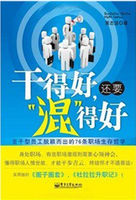"Prince Frederick's journey,"--first arrival in England of dissolute Fred from Hanover, who had NOT been to Berlin to get married last summer,--"was very secret: Mr. Poyntz did not hear of it till Friday last; at least he had no public notice of it."Why should he? "There will be fine struggling for places" in this Prince's new Household. "I hope my Brother will come in for one."[Ayscough's <italic> Lyttelton, <end italic> iii. 200-231.]--But here we pull the string of the curtain upon Lyttelton, and upon his Congress falling into complete languor; Congress destined, after dining for about a year more, to explode, in the Treaty of Seville, and to leave the Kaiser sitting horror-struck, solitary amid the wreck of Political Nature,--which latter, however, pieces itself together again for him and others.
Beneficent Treaty of Vienna was at last achieved; Treaty and Treaties there, which brought matters to their old bearing again, --Austria united with the Sea-Powers, Pragmatic Sanction accepted by them, subsidies again to be expected from them; Baby Carlos fitted with his Apanages, in some tolerable manner; and the Problem, with which Creation had groaned for some twenty years past, finally accomplished better or worse.
Lyttelton himself will get a place in Prince Frederick's Household, and then lose it; place in Majesty's Ministry at last, but not for a long while yet. He will be one of Prince Frederick's men, of the Carterets, Chesterfields, Pitts, who "patronize literature," and are in opposition to dark Walpole; one of the "West-Wickham set;"--and will be of the Opposition party, and have his adventures in the world. Meanwhile let him go to Paris with Mr. Poyntz; and do his wisest there and elsewhere.
"Who's dat who ride astride de pony, So long, so lean, so lank and bony?
Oh, he be de great orator, Little-ton-y."[Caricature of 1741, on Lyttelton's getting into the Ministry, with Carteret, Chesterfield, Argyll, and the rest:
see Phillimore's <italic> Lyttelton <end italic> (London, l845), i. 110; Johnson's <italic> Lives of the Poets, <end italic>
? Lyttelton; &c. &c.]
For now we are round at Friedrich Wilhelm's Pomeranian Hunting again, in the New-year's time of 1729; and must look again into the magnanimous sick-room which ensued thereon; where a small piece of business is going forward. What a magnanimous patient Friedrich Wilhelm was, in Fassmann's judgment, we know: but, it will be good to show both sides of the tapestry, and let Wilhelmina also speak. The small business is only, a Treaty of Marriage for one of our Princesses: not Wilhelmina, but Louisa the next younger, who has been asked, and will consent, as appears.
Fassmann makes a very touching scene of it. King is in bed, ill of his gout after that slaughter of the 3,602 wild swine: attendants are sitting round his Majesty, in the way we know; Queen Sophie at his head, "Seckendorf and several others" round the bed.
Letters arrive; Princess Frederika Louisa, a very young Lady, has also had a Letter; which, she sees by the seal, will be interesting, but which she must not herself open. She steps in with it; "beautiful as an angel, but rather foolish, and a spoilt child of fifteen," says Wilhelmina: trips softly in with it;hands it to the King. "Give it to thy Mother, let her read it,"says the King. Mother reads it, with audible soft voice:
Formal demand in marriage from the Serenity of Anspach, as foreseen.
"Hearken, Louisa (HORE, LUISE), it is still time," said the King:
"Tell us, wouldst thou rather go to Anspach, now, or stay with me?
If thou choose to stay, thou shalt want, for nothing, either, to the end of thy life. Speak!"--"At such unexpected question," says Fassmann, "there rose a fine blush over the Princess's face, who seemed to be at a loss for her answer. However, she soon collected herself; kissed his Majesty's hand, and said: 'Most gracious Papa, I will to Anspach!' To which the King: 'Very well, then; God give thee all happiness and thousand blessings!--But, hearken, Louisa,'
the King's Majesty was pleased at the same time to add, 'We will make a bargain, thou and I. You have excellent, Flour at Anspach (SCHONES MEHL); but in Hams and Smoked Sausages you don't, come up, either in quality or quantity, to us in this Country. Now I, for my part, like good pastries. So, from time to time, thou shalt send me a box of nice flour, and I will keep thee in hams and sausages. Wilt thou, Louisa?' That the Princess answered Yea,"says poor Fassmann with the tear in his eye, "may readily be supposed!" Nay all that heard the thing round the royal bed there --simple humanities of that kind from so great, a King--had almost or altogether tears in their eyes. [Fassmann, pp. 393, 394.]
This surely is a very touching scene. But now listen to Wilhelmina's account of another on the same subject, between the same parties. "At table;" no date indicated, or a wrong one, but evidently after this: in fact, we find it was about the beginning of March, 1729; and had sad consequences for Wilhelmina.
"At table his Majesty told the Queen that he had Letters from Anspach; the young Margraf to be at Berlin in May for his wedding;that M. Bremer his Tutor was just coming with the ring of betrothal for Louisa. He asked my Sister, If that gave her pleasure? and How she would regulate her housekeeping when married? My Sister had got into the way of telling him whatever she thought, and home-truths sometimes, without his taking it ill.
She answered with her customary frankness, That she would have a good table, which should be delicately served; and, added she, 'which shall be better than yours. And if I have children, I will not maltreat them like you, nor force them to eat what they have an aversion to.'--'What do you mean by that?' replied the King:















